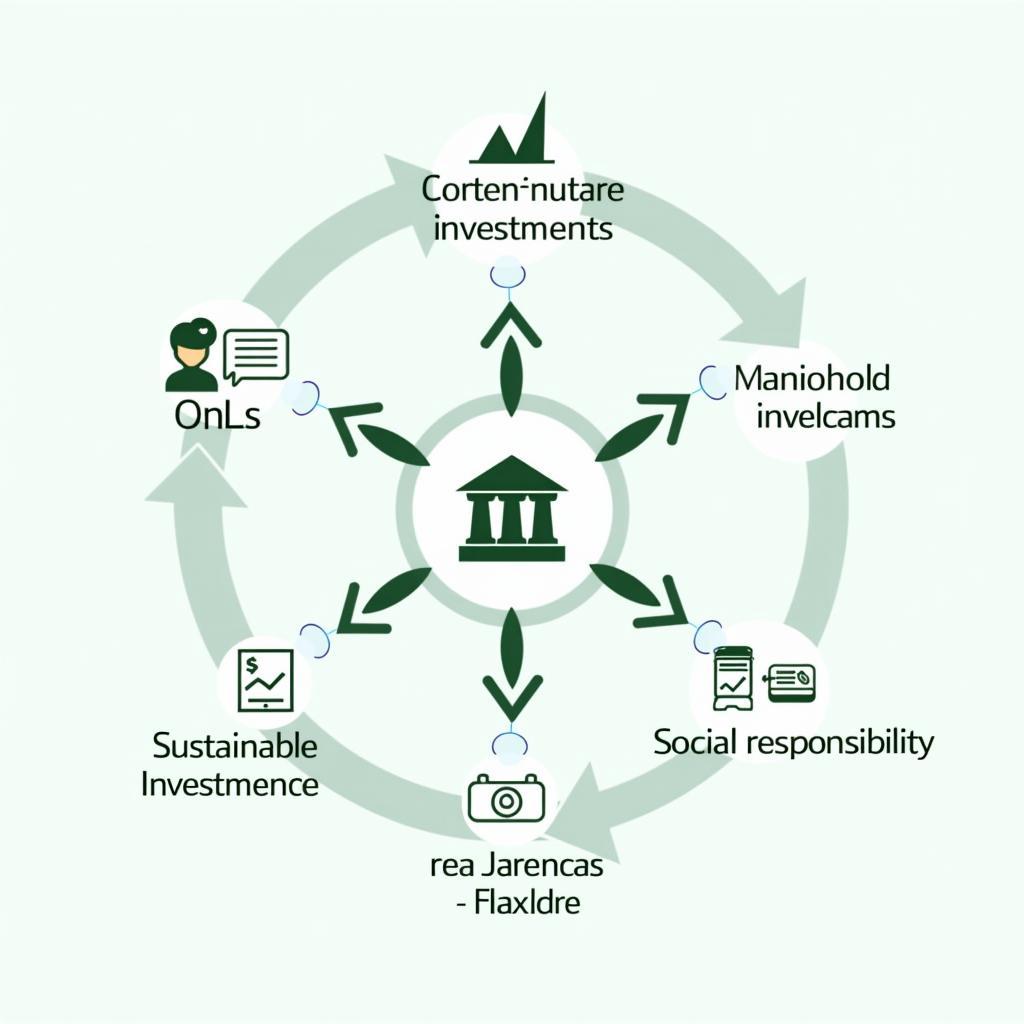Ethical banking and investments have become increasingly prominent topics in IELTS Writing Task 2, appearing in various forms over the past few years. This trend reflects growing global concerns about sustainable finance and responsible banking practices. Let’s examine a recent question that has appeared in actual IELTS tests.
Some people believe that banks should only invest in ethical businesses and projects. To what extent do you agree or disagree with this opinion?
Analysis of the Question
This question requires candidates to evaluate the role of ethical considerations in banking investments. Key points to address include:
- Definition of ethical investments
- Impact on banking profitability
- Social responsibility vs. business objectives
- Practical implications for the economy

Sample Essay 1 (Band 8.5)
The notion that banks should exclusively focus on ethical investments has gained significant traction in recent years. While I largely agree with this perspective, I believe a balanced approach is necessary to maintain both ethical standards and financial stability.
Primarily, restricting investments to ethical ventures would contribute substantially to sustainable development. When banks role of banking in promoting sustainable development prioritize environmentally and socially responsible projects, they create a ripple effect throughout the economy. For instance, investing in renewable energy initiatives rather than fossil fuels can accelerate the transition to clean energy while generating competitive returns.
Moreover, ethical banking practices enhance institutional reputation and long-term viability. The importance of ethical practices in banking cannot be overstated, as consumers increasingly favor institutions that demonstrate strong moral principles. Banks that maintain high ethical standards often experience increased customer loyalty and reduced regulatory risks.
However, implementing a strictly ethical investment policy presents certain challenges. Banks must balance their social responsibilities with financial obligations to stakeholders. A complete restriction to ethical investments might limit diversification opportunities and potentially affect financial stability. Furthermore, defining what constitutes an “ethical” investment can be subjective and vary across cultures and regions.
To address these challenges, banks should adopt a gradual transition toward ethical investing while maintaining some flexibility in their investment policies. This approach would allow them to fulfill their role as financial intermediaries while progressively increasing their positive impact on society.
Sample Essay 2 (Band 6.5)
In today’s world, many people think banks should only invest in ethical businesses. I partly agree with this idea because it has both advantages and disadvantages.
On the positive side, ethical investments help society. When banks invest in good projects, they help create jobs and protect the environment. For example, investing in solar power companies is better than supporting industries that pollute the air. Also, ethical investments make banks look good to their customers.
However, there are some problems with this approach. First, banks need to make money to survive. If they only choose ethical investments, they might miss other good business opportunities. Also, it’s hard to decide what is ethical because different people have different opinions about this.
In my opinion, banks should try to be more ethical but not completely limit themselves. They can how can ethical banking practices be promoted gradually by increasing ethical investments while still maintaining some traditional investments. This way, they can help society while staying profitable.
Key Vocabulary
- ethical (adj.) /ˈeθɪkəl/ – morally correct or acceptable
- stakeholders (n.) /ˈsteɪkhəʊldəz/ – people with an interest in a business
- intermediaries (n.) /ˌɪntəˈmiːdiəriz/ – organizations that help connect different parties
- viability (n.) /ˌvaɪəˈbɪləti/ – ability to succeed or survive
- diversification (n.) /daɪˌvɜːsɪfɪˈkeɪʃən/ – spreading investments across different areas
Conclusion
Writing about ethical banking requires a clear understanding of both financial and moral considerations. Practice by writing your own essay on this topic and share it in the comments below. Similar topics you might encounter could include:
- The role of banks in environmental protection
- Financial institutions’ social responsibilities
- Balancing profit with ethical considerations in business
These sample essays demonstrate how to approach this topic at different band levels while maintaining academic integrity and analytical depth.